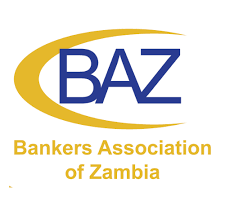Civil Society Organizations Oppose Government’s Plan for Security Mechanisms for Local Officials
A coalition of prominent civil society organizations in Malawi has raised strong objections to the government’s proposal to introduce security mechanisms for District Commissioners, Chief Executive Officers (CEOs), and Mayors. The organizations assert that such a move not only threatens the foundations of democracy but also poses potential risks to fundamental rights and freedoms, while adding financial strain to an already fragile economy. The groups argue that it is particularly concerning given the nation’s recent challenges, including natural disasters, high living costs, escalating debt, and broader electoral constituencies.
1. The Essence of Democracy
Central to the coalition’s concerns is the belief that democracy thrives when there is a balance of power, transparency, and accountability. Public officials, including those at the local level, are entrusted with the vital role of representing the interests of the people and ensuring government actions align with the needs of their constituents. The introduction of security mechanisms, the organizations argue, may hinder these officials’ accessibility and accountability to their constituents, potentially undermining the democratic process.
2. Misallocation of Resources and Economic Consequences
The civil society organizations highlight the economic implications of the proposed security mechanisms. Diverting resources from essential public services, such as healthcare, education, and infrastructure, may exacerbate socioeconomic inequalities and hinder economic growth. The presence of such mechanisms might also deter foreign investment and create an atmosphere of political instability, deterring potential investors. The financial costs associated with establishing and maintaining these mechanisms, including salaries and infrastructure, further strain the national budget, diverting funds away from initiatives that could stimulate economic prosperity, job creation, and poverty reduction.
3. Undermining Democracy and Suppressing Dissent
The introduction of security mechanisms is seen as potentially undermining democracy by stifling free speech, suppressing dissent, and discouraging civic engagement. The presence of security forces, even in a non-military capacity, can have a chilling effect on political discourse, erode trust, and deter citizens from participating in peaceful protests or holding leaders accountable. This could, in turn, impede the democratic process and infringe upon the fundamental right to free expression.
4. Abuse of Power
Another significant concern raised by the coalition is the potential for the abuse of power. Providing local government officials access to security apparatuses opens the door for potential misuse, such as suppressing political opposition or activities that do not align with the government’s interests. Such abuses, if unchecked, could have serious consequences for the rule of law and the overall quality of governance.
5. Erosion of Trust
Trust is deemed essential for the functioning of any democracy. The introduction of security mechanisms may erode trust by signaling that the government views its citizens as potential threats rather than partners in nation-building. This erosion of trust can lead to a breakdown of societal cohesion, ultimately impeding progress.
6. Legal and Ethical Concerns
The introduction of security mechanisms raises significant legal and ethical questions. Ensuring that these measures comply with international human rights standards, the constitution, and the rule of law is crucial. A lack of transparency and accountability in this regard could have far-reaching implications for the country’s international reputation and overall governance.
In response to these pressing concerns, the coalition of civil society organizations calls upon the government to reconsider its plan to introduce security mechanisms for local officials. They advocate for the preservation of democracy, adherence to principles of constitutional governance, trust-building with the governed, protection of fundamental rights, and the promotion of transparent and accountable governance as guiding principles for government actions.
The organizations emphasize their commitment to advocating for a just and democratic society, where the voices of the people are not only heard but also respected. They see the concerns they raise as an opportunity for the government to demonstrate its unwavering commitment to democracy, accountability, adherence to austerity measures, and the rule of law. Ultimately, their goal is to work collaboratively to build a brighter and more equitable future for the nation, founded on principles of justice, transparency, and respect for all.



